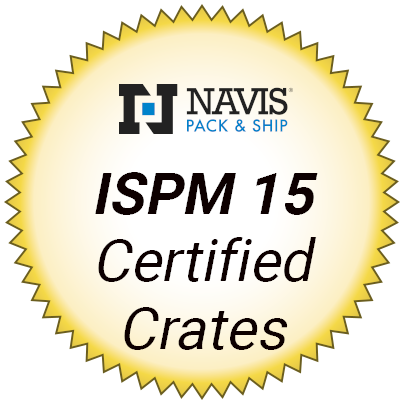As international shipping continues to increase, importers and exporters are looking for ways to prevent the spread of harmful pests and diseases. At the heart of the issue is the wood containers in which goods are commonly shipped. One study estimates that 25 new pests are introduced to U.S. forests every decade, contributing to annual damages of $4.5 billion across the country. It’s a global issue, however, and American exporters must also take precautions to properly ship goods across the world.
IPPC Creates International Standards for International Shipment of Wood
The international community has taken steps to prevent such infestations. Most notably, the International Plant Prevention Commission introduced the International Standards for Phytosanitary Measures -- commonly referred to as ISPM-15. The standards for international shipment of raw wood materials apply to vessels, aircraft, vehicles, containers, storage areas, and soil and have been adopted by more than 85 countries, including the United States.
Types of Wood Treatment
When shipped out of the U.S., any raw wood materials must be treated by the standards established by the ISPM-15. These include:
Heat Treatment: Wood must be heated until its core reaches 56 degrees Celsius for at least 30 minutes. There are several methods of acceptable heat treatment, including steady heat treatment, kiln-dried, mobile heat treatment, portable chamber process, and fast container connector. This is the most common method of treatment.
Fumigation Treatment: Wood container is filled with methyl bromide. There are a couple of acceptable fumigation methods, including container fumigation and tent fumigation.
Consequences of Improper Wood Treatment
Once the shipping cargo is properly treated, it must be branded with the official IPPC certification mark. Failure to have the cargo properly treated or apply the certification mark can result in delay, confiscation, return, or destruction of the cargo without refund to the exporter.
While losing your shipment is the most direct and obvious consequence of improper treatment, it can also have significant negative effects on your business. If your business requires building relationships with suppliers and buyers across the world, a delayed delivery or confiscated goods can lead to a loss of trust, and eventually, revenue.
As previously mentioned, improper treatment also has the potential to wreak havoc on the world’s ecosystems. The introduction of non-native insects and disease destroys millions of trees across the world. Not only is it damaging to the environment, the costs of removing infested trees often falls to homeowners and local governments.
For these reasons, it’s important that you work with a reliable international shipping company that’s in full compliance with ISPM-15 standards. Navis Pack & Ship strictly adheres to all ISPM-15 rules for all international shipments and has the experience to ensure all of your international cargo is delivered on time and without complications. For more information on shipping wood materials internationally, contact us at 800-344-3528, or visit a Navis Pack & Ship in your area.

